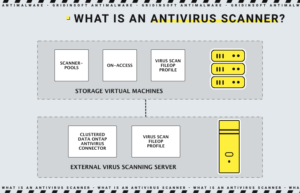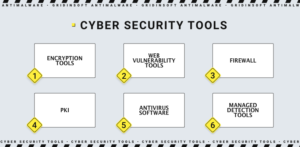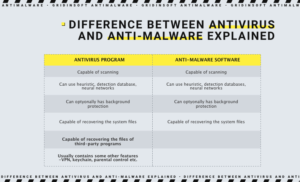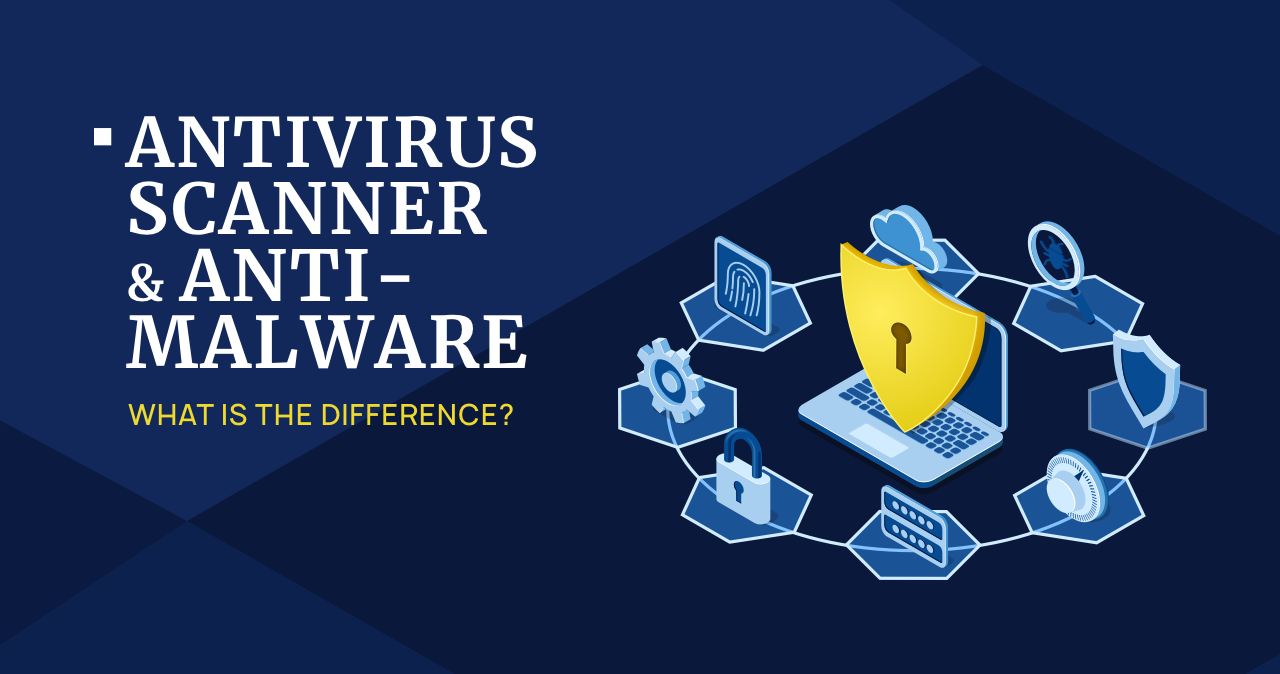Antivirus, anti-malware software, antivirus scanner… There are so many terms, and all of them look so similar, but they’re different. It is easy to confuse the user who does not have any information about all these things. Thus, it is important to clear out these things in easy words.
From a certain point of view, antivirus programs, anti-malware software, security tools, and antivirus scanners are just synonyms. Sure, they have a lot of things in common – enough to call them somewhat the same things. However, when we talk about a scientifically correct term (cybersecurity is a science!), it is important to make a distinction between these terms.
What is an antivirus scanner?
Let’s start with the last one. An antivirus scanner is a program capable of detecting malware on your computer during the scanning process. It may apply any known detection methods – heuristics, database-backed, or neural network. This class of programs can also offer you proactive protection features – the continuous scanning of your PC in the background.

The main disadvantage of antivirus scanners is that they cannot remove malware from your computer. They check the system and notify about the present threats. Well-done scanners can also block the dangers but not remove them. Some of the Antivirus vendors offer their products for free testing – with only antivirus scanner functionality. Such vendors are Avast, AVG, Kaspersky, and McAfee.
Security tool
This term is wider, and can be used as an umbrella term for any software that is able to detect malware. Nonetheless, besides the “antiviruses”, security tools also include programs that manage to close the security breaches or enhance the overall system security. Those programs may be made manually – batch scripts, for example – or produced by cybersecurity vendors, but their purpose is single and same.

What is the difference between antivirus and anti-malware?
Antivirus and anti-malware are probably the most similar in their functionality. Both of them can scan your system and remove the threats. Both use all possible detection methods and optionally provide proactive protection. The main difference between these two types of programs hides in the recovery abilities.
By definition, antivirus programs are full-featured applications that are able to recover not only system files and elements, but also files of the third-party programs. Such function was needed in the times when viruses (as a class of malware) were dominating the market. The activity of this malware usually leads to massive failures in the software, both OS-related and external. That’s why antivirus should be able to fix all things.

Anti-malware software, on the other hand, is lightweight and has fewer functions. It is capable only of repairing the system files and all standard functions. Some say this term is just more modern than the “antivirus”. This version has a foundation, but the difference between antivirus and anti-malware is pretty strict. Lightweight programs are usually less expensive and consume fewer system resources during the scans or recovery operations.
Which security tool is the best?
That is only your choice. There is no all-purpose program that will fit anyone. Generally, I can advise you GridinSoft Anti-Malware – as a lightweight and efficient solution with a reasonable price. You can have your own opinion at this point – regarding what you need to protect with this program. And, of course, according to the thickness of your wallet.
Anyways, the primary security tool must be present anywhere in your awareness. There is no need for complicated, all-in-one antivirus programs when you know the primary ways to protect your system. When you are not clicking the strange ads online and don’t use pirated software, you already have much fewer chances to get malware on your PC. These principles must be the same essential as “do not stick your fingers in the socket” or “wash your hands”.





i am trying to get it for two computers